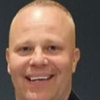Forensic Meteorologists in Insurance Litigation: Challenging or Supporting Denials; Navigating FRE 702

Welcome! Strafford is now BARBRI! The expert courses you know from the trusted global leader in legal education.
Course Details
- smart_display Format
Live Online with Live Q&A
- signal_cellular_alt Difficulty Level
Intermediate
- work Practice Area
Insurance
- event Date
Thursday, September 18, 2025
- schedule Time
1:00 p.m. ET./10:00 a.m. PT
- timer Program Length
90 minutes
-
This 90-minute webinar is eligible in most states for 1.5 CLE credits.
-
Live Online
On Demand
This CLE webinar will provide guidance to counsel involved in insurance disputes and litigation about when and how to retain a forensic meteorologist to confirm or challenge that damage occurred where, when, or to the extent alleged (or denied). The panel will also discuss examining and cross-examining forensic meteorologists in deposition or trial as well as admissibility under FRE 702.
Faculty

Mr. Else is a Senior Forensic Meteorologist for Weather Works, LLC in Hackettstown, NJ with over 27 years of professional experience. He was granted the Certified Consulting Meteorologist designation by the American Meteorological Society in 2011, and was granted the Advanced Snow Manager (ASM) designation by the Snow & Ice Management Association in 2018. Mr. Else's specialties include: Creating site-specific Certified Past Weather Reports for both Plaintiff and Defense firms. His Areas of Expertise include: slip-and-fall accidents on snow, ice and/or water, refreeze, wind damage, lightning strikes, floods, visibility, lighting conditions, and more.
Description
Forensic meteorologists are retained by both insurers and policyholders in investigating and litigating insurance claims involving weather conditions, such as: rain, hail, wind, snow and ice, hurricanes, floods, tornadoes, and lightning strikes. Underwriters may also employ them to assess weather risks at a given location. The types of claims where weather could be involved include business, commercial and residential properties, and auto and truck accidents, to name a few.
Forensic meteorologists may be needed to opine on whether conditions existed to allow an event, when an event occurred, exactly where it occurred, its severity, and its duration. A sequence of interrelated but distinct events may show which event caused the damage. Events at various levels of severity may be counted as separate occurrences subject to separate deductibles. The same type of event and progressive damage over time may be covered by different policies. The official end of some weather events imposes duties on policyholders, which if not undertaken could affect coverage.
Automated weather data reports generated by well-recognized companies in the industry are not always accurate. Human interpretation by a forensic meteorologist is necessary to see if the automated program and the historical weather data are in agreement. For instance, does the computer-generated report confirm with what trained storm spotters observed on the ground? Forensic meteorologists are subject to Daubert challenges under FRE 702, and their testimony can be excluded or limited.
Listen as this experienced panel of insurance litigators and forensic meteorologists discusses the role of meteorologists in insurance litigation, effective examination and cross-examination, and getting or challenging the admission of testimony or weather data into evidence.
Outline
I. Types of weather events that will require a forensic meteorologist
II. How to select a forensic weather expert
III. Automated weather reports vs. using a forensic meteorologist
IV. Types of weather data a forensic meteorologist utilizes
V. Presenting or challenging forensic meteorologist testimony
Benefits
The panel will review these and other important issues:
- What does a forensic weather report include?
- What credentials should a weather expert witness have?
- What is hyper-local weather station data?
Unlimited access to premium CLE courses:
- Annual access
- Available live and on-demand
- Best for attorneys and legal professionals
Unlimited access to premium CPE courses.:
- Annual access
- Available live and on-demand
- Best for CPAs and tax professionals
Unlimited access to premium CLE, CPE, Professional Skills and Practice-Ready courses.:
- Annual access
- Available live and on-demand
- Best for legal, accounting, and tax professionals
Unlimited access to Professional Skills and Practice-Ready courses:
- Annual access
- Available on-demand
- Best for new attorneys
Related Courses

PFAS Liability Litigation and Complex Coverage Issues: Strategies for Insurers, Policyholders, and Their Attorneys
Tuesday, November 4, 2025
1:00 p.m. ET./10:00 a.m. PT
Recommended Resources
Navigating Modern Legal Challenges: A Comprehensive Guide
- Business & Professional Skills
- Career Advancement
Your Guide to Professional Development with BARBRI
- Learning & Development
- Business & Professional Skills
- Career Advancement
- eDiscovery
Building Your Book: Strategies to Secure Long-Term Success
- Business & Professional Skills
- Career Advancement
- Talent Development